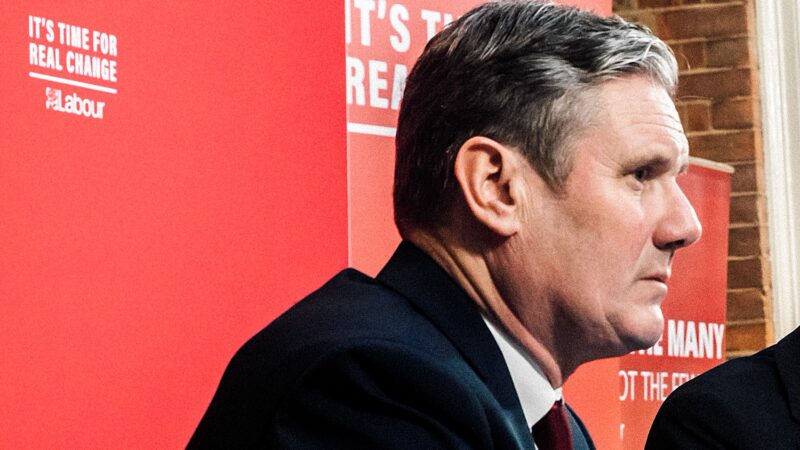How does an impeccable but essentially typical politician cope in extraordinary times? With Keir Starmer we’re going to find out

A 57 year old straight white man, an ex-lawyer and ex-Director of Public Prosecutions, has been elected as leader of the Labour Party. He is married with two children. He is himself one of five, his father was a toolmaker, and he worked his way up the legal profession, and was first elected as a MP in 2015. He’s even named after Keir Hardie.
That someone like this would be elected as leader of the Labour Party in 1994 (well, a lawyer won then too!), 2007, or 2010 would be plausible, even normal.
But since then both UK and Labour Party politics has become more extraordinary – Cameron’s 2015 victory (and with it the promise to hold the EU Referendum), Corbyn becoming Labour Leader later that same year, the Brexit vote and its aftermath, Corbyn battling off a challenge from Owen Smith, May taking the Tories more to the right and Corbyn’s Labour recovering somewhat at the 2017 General Election, the Brexit cliff-hanger, then the serial liar Johnson replacing May, and leading the Tories to a election victory in December 2019, Brexit happening in January 2020, and then the Coronavirus crisis.
So who wins the 2020 Labour Leadership Election? An essentially typical politician: Keir Starmer.
A politician that The Sun has so little on that they try to use millionaire as an insult in their news story about his victory. A politician who – as far as public information goes anyway – has never been involved in any sort of political scandal. A politician that Dan Sabbagh in The Guardian says “ran an undramatic, error-free campaign”. A politician who is careful with his words, and seems to be capable of giving measured answers to straight questions. A politician who is really rather normal.
The only thing that anyone really has on Starmer relates to his time as Director of Public Prosecutions, most notably his possible role in allowing the so-called “Twitter joke trial” to proceed (as documented in this piece by Nick Cohen). Leftist or anti-EU critics of Starmer might well claim his more pro-EU positions were the root of Labour’s lack of clarity on Brexit at the 2019 General Election, but Starmer was but one member of Corbyn’s team and he stayed with Corbyn while other more pro-EU MPs withdrew to the backbenches. Beyond that, what else have critics got? Starmer was loyal enough to be in Corbyn’s front bench team, but far away enough to not be seen to be a Corbynista – so guilt by association is hard to pin to him either.
The challenge as I see it for Starmer is an unusual one. How does this normal politician get a hearing in extraordinary political times? How does his forensic and largely fact based approach work against the bluff and untruth of the government? How does his grey middle aged man-ness play against bumbling chappie Johnson? When he has some important point to make will anyone actually listen, because his nuance is lost in the cacophony of emotion of the age?
(Note: there is a legitimate critique to be made of what our concept of a normal or typical politician is – but a suit wearing university educated straight white man in his fifties is probably what springs to mind if you say “politician” to most Brits. This is no criticism of Keir Starmer – he cannot and should not be something he is not.)
Well. it’s par for the course for the “Labour” Party – another bloodless middle-class apparatchik who will do nothing to advance any kind of real socialist agenda. That’s what the “Labour” Party is all about. It’s a tool for covering up for capitalism.
Given the current state of things, Starmer may well do well.
Certainly if Brexit had still been the main issue of the day, he would have struggled to get through to an electorate that were (still are) fed up with the whole mess and just want someone to “get it done”.
But you can’t get Covid-19 done and the UK desperately needs someone to ask whether the government really is doing enough. Starmer probably is the best person to fill that role.